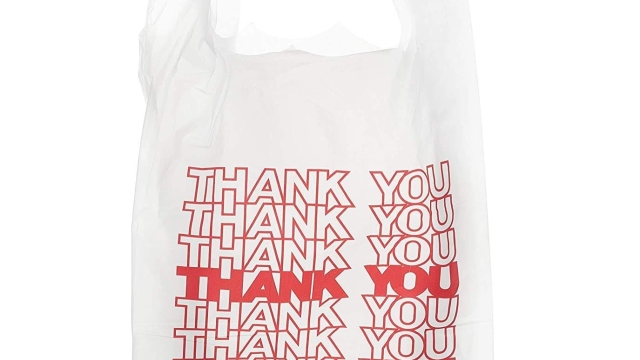
Plastic shopping bags have become a ubiquitous part of modern life. They are often seen as the epitome of convenience, making it easy to carry groceries, clothes, and countless other items from one place to another. Their lightweight design and durability have made them a go-to choice for both consumers and retailers alike. However, beneath this veneer of convenience lies a complex issue that raises questions about our environmental responsibilities and the long-term impacts of our choices.
As we navigate our daily lives with these bags in tow, it’s important to consider the consequences of relying on plastic shopping bags. While they offer immediate practicality, their presence has had far-reaching effects on the planet. From the waste they generate to their role in polluting our oceans and harming wildlife, the very products that were designed for convenience pose significant challenges for sustainability. In this exploration, we will dive into the pros and cons of plastic shopping bags, shedding light on the true cost of convenience.
Environmental Impact of Plastic Bags
The environmental impact of plastic shopping bags has become a pressing concern in recent years. These bags are made from polyethylene, a product derived from fossil fuels, which contributes to greenhouse gas emissions during production. Once discarded, plastic bags can persist in the environment for hundreds of years, breaking down into smaller microplastics that infiltrate ecosystems and harm wildlife. This longevity in the environment exacerbates the pollution problem and places immense strain on waste management systems.
Marine ecosystems are particularly affected by plastic shopping bags. Many of these bags find their way into oceans and waterways, where they pose a serious threat to aquatic life. Sea turtles, for example, often mistake plastic bags for jellyfish, leading to ingestion that can result in injury or death. Additionally, birds and other wildlife can become entangled in plastic waste, creating further hazards to their survival. The impact on biodiversity is profound, as plastic pollution disrupts food chains and the habitats of countless species.
The economic consequences of plastic waste are also significant. Communities spend millions of dollars each year in cleanup efforts, and the tourism industry suffers as natural landscapes become littered with plastic debris. The costs of disposing of plastic bags add up, particularly in regions lacking effective waste management solutions. As awareness of these issues grows, many municipalities are moving toward policy changes to limit or ban plastic shopping bags, seeking to mitigate their environmental footprint and promote more sustainable alternatives.
Biodegradable Shopping Bags
Alternatives to Plastic Bags
One of the most popular alternatives to plastic shopping bags is the reusable cloth bag. These bags are typically made from durable materials such as cotton or recycled fabrics, making them sturdy enough to carry heavy groceries. They can be washed and reused many times, reducing the need for single-use plastics. With various designs and sizes available, consumers can easily find a cloth bag that suits their personal style and shopping needs.
Another option gaining popularity is biodegradable bags. Made from natural materials such as cornstarch or potato starch, these bags break down more easily than traditional plastic bags when exposed to natural environments. While they serve a similar purpose as plastic shopping bags, their ability to decompose makes them a more environmentally friendly choice. However, it is essential to dispose of them correctly to maximize their benefits and reduce potential pollution.
Lastly, many retailers are now offering paper bags as an alternative to plastic. While paper bags are not as durable as their plastic counterparts, they are recyclable and can be produced from sustainable sources. Paper bags tend to have a lower environmental impact when considering their lifecycle, especially when sourced from responsibly managed forests. By choosing paper bags, consumers can contribute to reducing reliance on plastic while still having a functional option for carrying purchases.
The Future of Shopping without Plastic
As awareness grows about the detrimental impact of plastic shopping bags on the environment, many retailers and consumers are beginning to embrace alternatives. Reusable shopping bags made from durable materials such as cotton, jute, or recycled fibers are gaining popularity, as they offer a sustainable solution that reduces waste. These bags not only last longer than their plastic counterparts but also help cultivate a culture of responsibility in consumers, encouraging them to think more critically about their purchasing habits and the materials they use.
In addition to reusable bags, innovative solutions are emerging to redefine the shopping experience. Some stores are adopting compostable or biodegradable bags made from natural materials, which can decompose over time and minimize ecological harm. Additionally, bulk shopping is seeing a resurgence, with consumers encouraged to bring their own containers to reduce packaging waste further. This shift towards a more circular economy is not just beneficial for the planet; it fosters a sense of community and connection among shoppers who prioritize sustainability in their everyday lives.
As society transitions away from plastic shopping bags, the future of shopping looks increasingly promising. Educating consumers about their choices and promoting sustainable practices are essential steps in this journey. By fostering a lifestyle centered around mindful consumption and environmentally friendly alternatives, communities can work collectively toward reducing plastic pollution, preserving natural resources, and creating a healthier planet for future generations. This transformation is not merely an individual effort but a collective movement towards a sustainable future.


